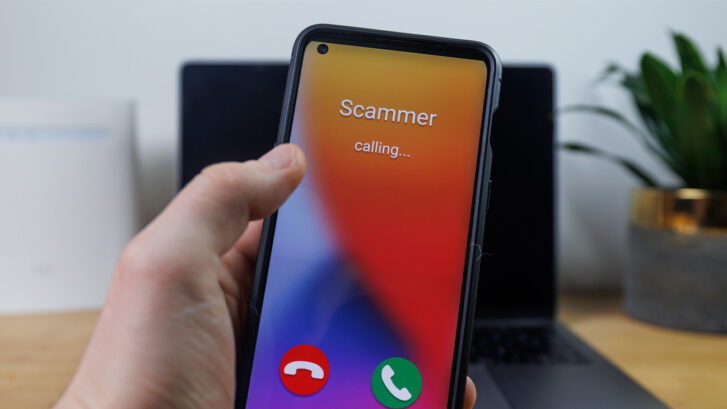Scam calls are not just annoying; they can be dangerous, leading to financial loss and personal information theft. With the rising prevalence of these fraudulent calls, it’s crucial to be proactive in protecting yourself. This guide will provide comprehensive tips on avoiding scam calls, including identifying them, understanding common tactics used by scammers, and utilizing tools like YouMail to enhance your phone security.
Understanding Scam Calls
Scam calls come in various forms, from robocalls to personalized attempts to extract personal information or money. These calls often appear legitimate, making it essential to understand their characteristics and the typical tactics scammers use.
Common Types of Scam Calls
- Robocalls: Automated calls often promoting fake services or products.
- Phishing Calls: Attempts to trick you into giving out personal information, such as Social Security numbers or banking details.
- IRS Scams: Callers pretending to be from the IRS, demanding immediate payment and threatening legal action.
- Tech Support Scams: Claims that your computer or device is infected and requires immediate repair, usually leading to malware installation or financial fraud.
- Lottery or Prize Scams: Informing you of a “win” that requires a fee for processing or delivery.
Find out more about Fraudulent Scams Exploiting Popular Brands at the YouMail Robocall Scam Guide.
Recognizing Scam Calls
Knowing how to identify a scam call can prevent you from falling victim to these fraudulent schemes.
- Unsolicited Calls: Be wary of calls from unknown numbers, especially those you did not expect.
- Pressure Tactics: Scammers often create a sense of urgency, demanding immediate action or payment.
- Requests for Personal Information: Legitimate organizations rarely ask for sensitive information over the phone.
- Too Good to Be True Offers: If it sounds too good to be true, it probably is.
Steps to Avoid Scam Calls
1. Use Call Blocking Apps
Call blocking apps like YouMail can significantly reduce the number of scam calls you receive. These apps use databases of known scam numbers to block calls before they reach you.
- YouMail: Known for its robust call blocking and spam detection capabilities, YouMail can screen calls and block known scammers automatically. It also provides visual voicemail and second-line services for enhanced privacy.
2. Register on the National Do Not Call Registry
Adding your number to the National Do Not Call Registry can help reduce telemarketing calls. While it won’t stop all scam calls, it can decrease the volume.
3. Don’t Answer Unknown Numbers
If you receive a call from an unknown number, let it go to voicemail. Legitimate callers will leave a message, while scammers often will not.
4. Verify Caller Identity
If you answer a call and the caller claims to be from a reputable organization, ask for their name, department, and a callback number. Verify this information independently by contacting the organization directly using a known and trusted number.
5. Avoid Sharing Personal Information
Never provide personal or financial information over the phone unless you initiated the call and are certain of the recipient’s identity.
Using YouMail to Enhance Call Security
YouMail offers several features to help you avoid scam calls and communicate safely.
Call Blocking and Screening
- Spam Blocking: Automatically blocks calls from known scammers and telemarketers.
- Custom Call Handling: Allows you to set specific rules for handling calls from unknown or suspicious numbers.
- Visual Voicemail: Lets you read voicemail messages, making it easier to identify legitimate calls.
Second Line Services
A second phone line can be a valuable tool for separating work and personal communications, reducing the risk of exposing your primary number to potential scammers.
- Work and Personal Separation: Use your second line for business, keeping your personal number private and secure.
- Enhanced Privacy: Protect your primary number from being exposed online or in business transactions.
Known Safety Threats Related to Scam Calls
Understanding the specific threats associated with scam calls can help you stay vigilant and informed.
Financial Fraud
Scammers often seek to obtain banking details, credit card information, or direct payments. Falling victim to such schemes can lead to significant financial loss.
Identity Theft
Providing personal information to scammers can result in identity theft, leading to unauthorized use of your personal details for various fraudulent activities.
Malware and Phishing
Some scam calls may direct you to websites or encourage you to download apps that contain malware, compromising your device’s security and personal information.
Find out how the scammers got your number
See where your phone number, address, or other personal info is exposed – in seconds. Remove your personal information from data broker sites, reducing the likelihood of you falling victim to fraud, so you can take control of your privacy.
See where your phone number, address, or other info is exposed – in seconds.
🔒 Your info will remain private and secure.
How to Communicate Safely with YouMail
YouMail’s suite of tools and services can help you maintain safe and secure communication practices.
Call Management
- Smart Call Handling: Customize how different types of calls are managed, ensuring that unknown or suspicious calls are treated appropriately.
- Call Logs and Reports: Review detailed logs and reports of all calls, helping you track and analyze call patterns for potential scams.
Privacy and Security Features
- Second Line Privacy: Use a second line to keep your primary number private.
- Voicemail Security: Ensure your voicemail is secure from unauthorized access and spam.
Conclusion
Avoiding scam calls requires a combination of vigilance, knowledge, and the right tools. By understanding common scam tactics, using call blocking apps like YouMail, and following safe communication practices, you can protect yourself from potential threats. Remember, staying informed and proactive is your best defense against scam calls.





